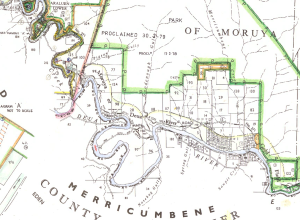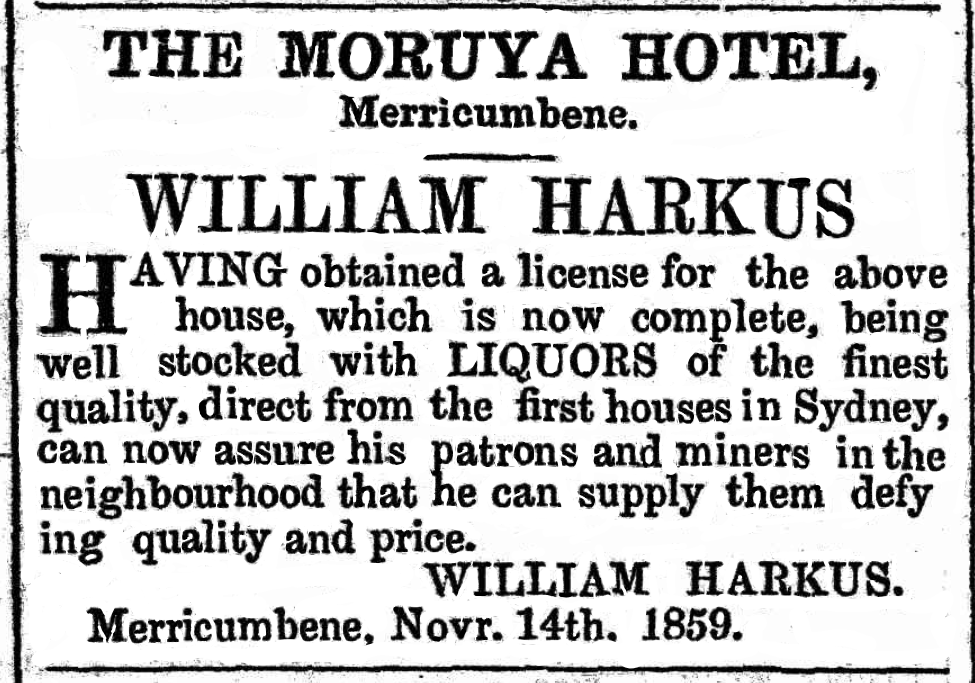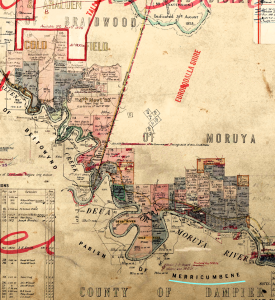Licensee
1859-1860 – William Harkus

Location
Merricumbene
In the News
In March 1859, the Goulburn Herald reported a new rush to Merricumbene, noting ‘This place is about five miles from Mudmelong, coastward, and on the banks of the Creek. There is every probability that there is gold, and in paying quantities, right down to the coast.’1Goulburn Herald and County of Argyle Advertiser (NSW : 1848-1859), Wednesday 30 March 1859, p 3.
The population was suggested by the Empire in August to be approximately 400, and with a daily increase.2Empire (Sydney, NSW : 1850-1875), Saturday 6 August 1859, p 3.
At Merricumbene mining matters are decidedly satisfactory, the Empire reported in September 1859 with ‘the population is daily increasing and claims are being profitably worked. Messrs. Sweeny and Harkhus [Harkus] have completed a substantial building as a store with oven attached, which will be found to be a material improvement’.3Empire (Sydney, NSW : 1850-1875), Tuesday 6 September 1859, p 3.
By September 1859, the Empire recorded ‘that Mr. Harkus, of Merricumbene, has obtained a license for his house, which will be called the Moruya Hotel. This will be found to be a great want supplied’.4Empire (Sydney, NSW : 1850-1875), Tuesday 13 September 1859, p 10.

In January 1860 an advertisement was placed in the Braidwood Observer 5Braidwood Observer and Miner’s Advocate (NSW: 1859 – 1862), Saturday 21 January 1860, page 1 by William Harkus advising that he had obtained a license, and that the Moruya Hotel at Merricumbene, was complete and now able to supply patrons and miners in the neighbourhood.
The Empire in February 1860 described a now nearly deserted place, adding that ‘with the exception of a couple of claims little or nothing is doing in the gold-digging line. It is a matter of much regret that things have got to such an ebb down the river that Mr. Harcus [Harkus] has deemed it prudent to close the Moruya Hotel, wherein he has acted the kind and urbane host; he has been a good friend to many persons in this quarter, but finding such an utter stagnation of business as at present exists, detrimental to his interest, and judging also that the kindness which he invariably displayed towards any of the diggers who stood in need of a friendly hand was not only unlikely to be appreciated and returned, but the very reverse, and that they, (the diggers,) were only getting still more heavily into his debt, he prudently sold off his stock-in-trade’.6Empire (Sydney, NSW : 1850-1875), Tuesday 14 February 1860, p 2.
